Revive
By Serena Renner
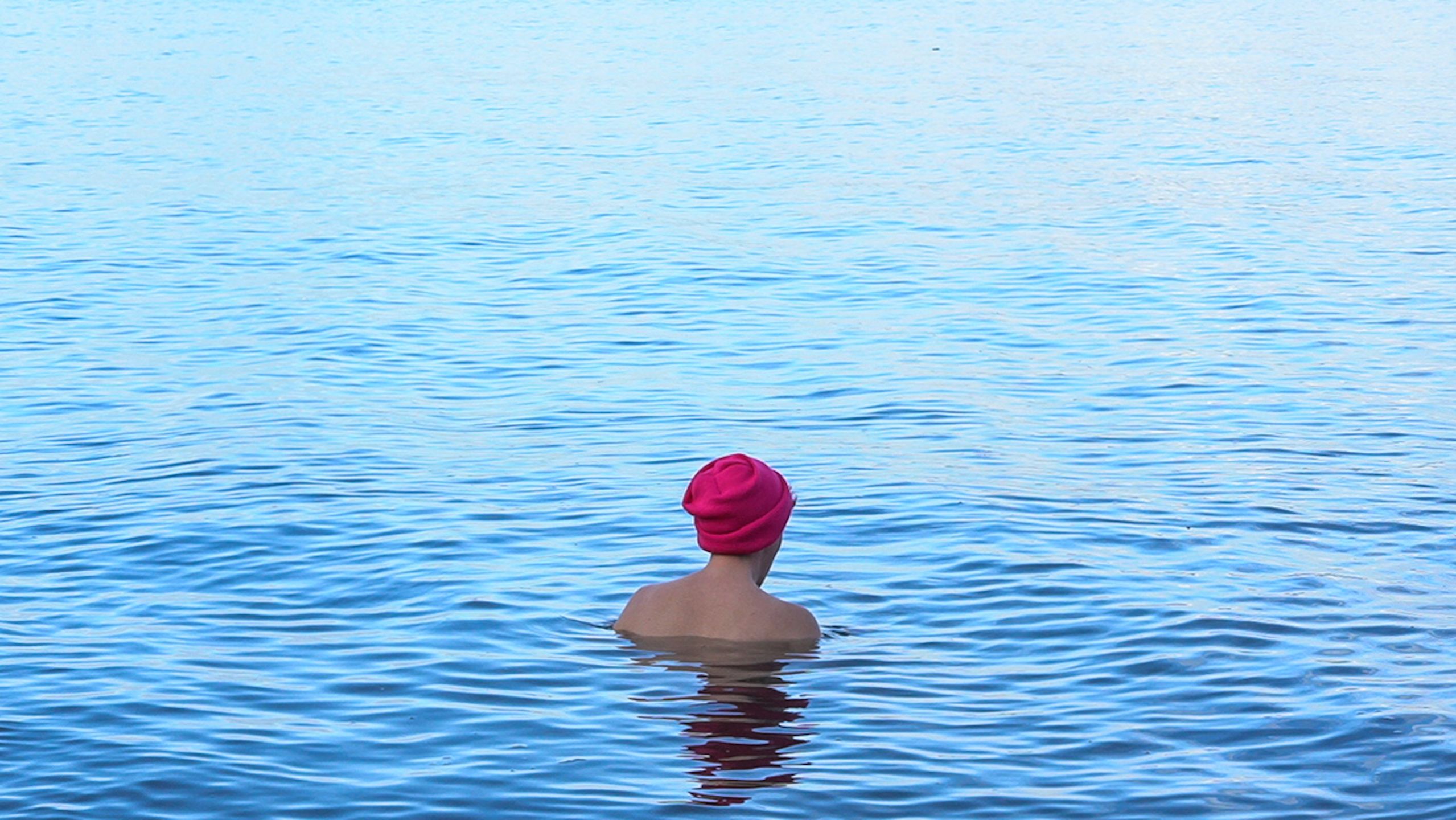
Water is the most abundant compound in the human body and on the surface of the Earth. It's been used in health remedies for thousands of years by everyone from Indigenous Chiefs and Ancient Greeks to modern-day Scandinavians and Japanese. We couldn't survive without it.
Shocking oneself with icy water is an age-old trick for the mind. When the body feels cold, it tightens up, sending blood to vital organs. As it warms, blood floods back to the limbs and brain, helping with circulation and inflammation and releasing feel-good endorphins along the way. Cold water is thought to be especially effective for people battling depression.
Perhaps it should be no surprise that when the COVID-19 pandemic hit, people all over the world began taking dips. In Vancouver, where residents have a century-old tradition of plunging into the Burrard Inlet on New Year's Eve, the cold-water habit has taken off, especially along the shores of English Bay.
Here's the story of six Vancouverites who have found vitality and connection in the waters around Kitsilano Beach.
A New Year's Ritual
Claire

Claire Love Wilson, 31, Multidisciplinary Artist
By the end of December, I was feeling the start of some pretty serious burnout — energetically, emotionally, spiritually. And so when the new year came, I just had this deep feeling, which was to go down to the water. From a young age, I’ve been called like this. I have a little voice inside that says, get in the water.
I’m Scottish on both sides of my family, and I lived in Scotland a few years back. While uncovering my ancestry and the rituals of my lineage, I got into dipping in cold water. At that time, I was terrified of being in the water. I had a lot of anxiety because I would freeze and not be able to warm up. But I started working on entering cold water with a little more presence and calm. And then through a friend who’s a member of the Squamish Nation, I’ve been reminded of the wisdom of dipping and that it’s a tradition that exists in different forms all around the world, including on these lands.
When I approach the water, I try to get clear on an intention, something that I either want to let go of or call in. And then I take some time to feel in my body where I am and acknowledge the land that I’m on. I acknowledge the Musqueam, Squamish and Tsleil-Waututh — the ancestors and stewards of this land — and give thanks for the incredible privilege of living here as a guest. Then I usually call on my own Scottish ancestors for strength.
There's a song that I sing called “Bella Mama,” which means beautiful mother in Italian and is a tribute to Mother Earth. I’m always singing as a soothing thing, and this song that I learned in Scotland came to me on New Year's Eve. It’s a nice ritual, this practice of acknowledging the water and acknowledging the land. The song helps remind me of that connection and just feels right in my body.
My dips are never the same but I generally feel more awake. It feels like my body is tingling but also that my energy is vibrating, so that makes me feel more connected to other things that are vibrating around me like trees, water, rocks, sand, people.
Right after I sit in the water, there’s usually a moment of panic. My body convulses. Then I take a deep breath. That's when I arrive fully in the water. Sometimes, it’s absolutely quiet. There’s no thoughts. There’s no anything. It’s just this quietness and seeing and feeling everything that’s around me. It’s a big expansive feeling.
When I get out, my whole core feels like it’s been in an ice box. When that thaws, it opens up to this warmer sense of being embodied. There’s an undeniable feeling of being in a body and that feels very comforting and human.
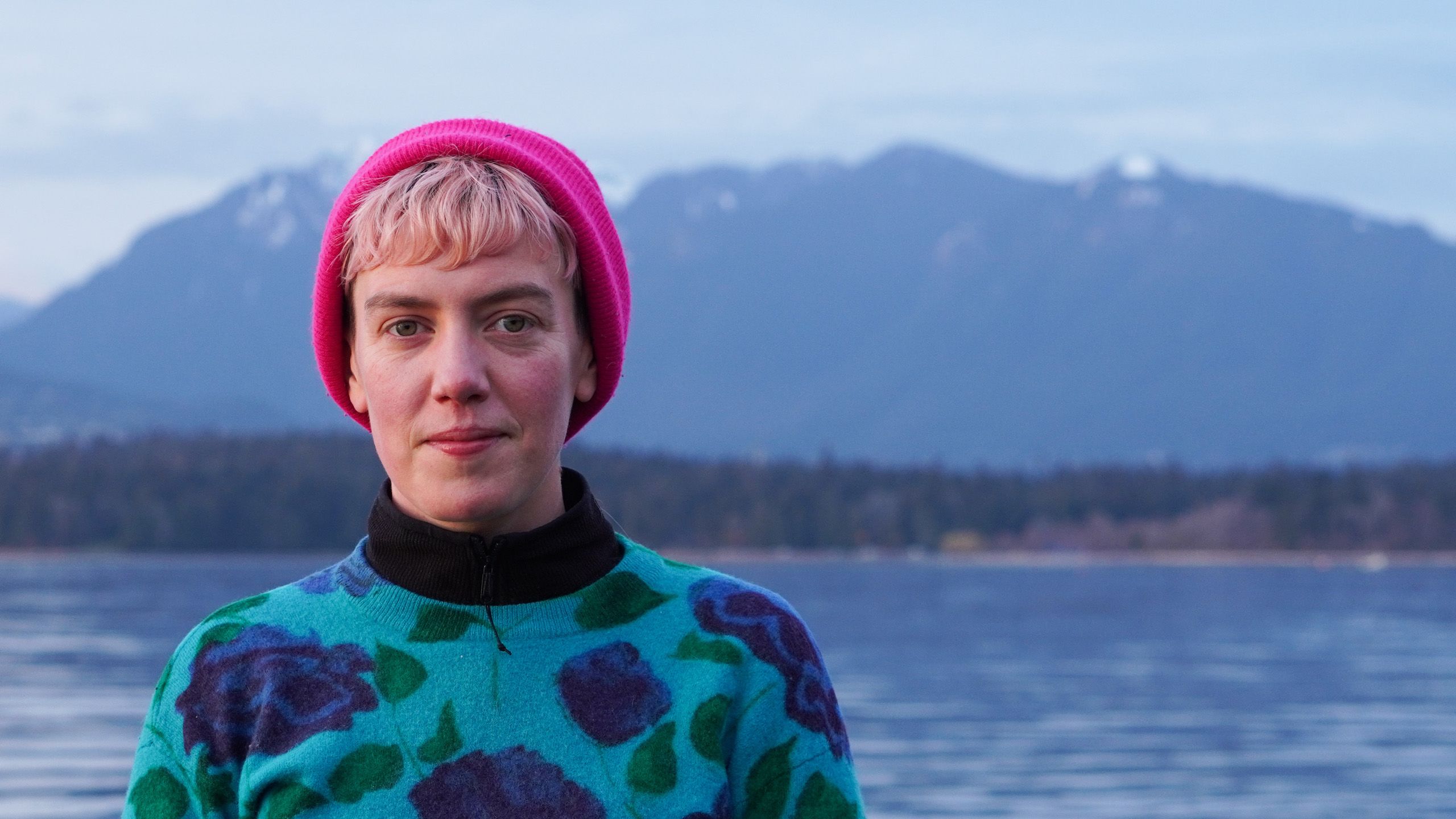
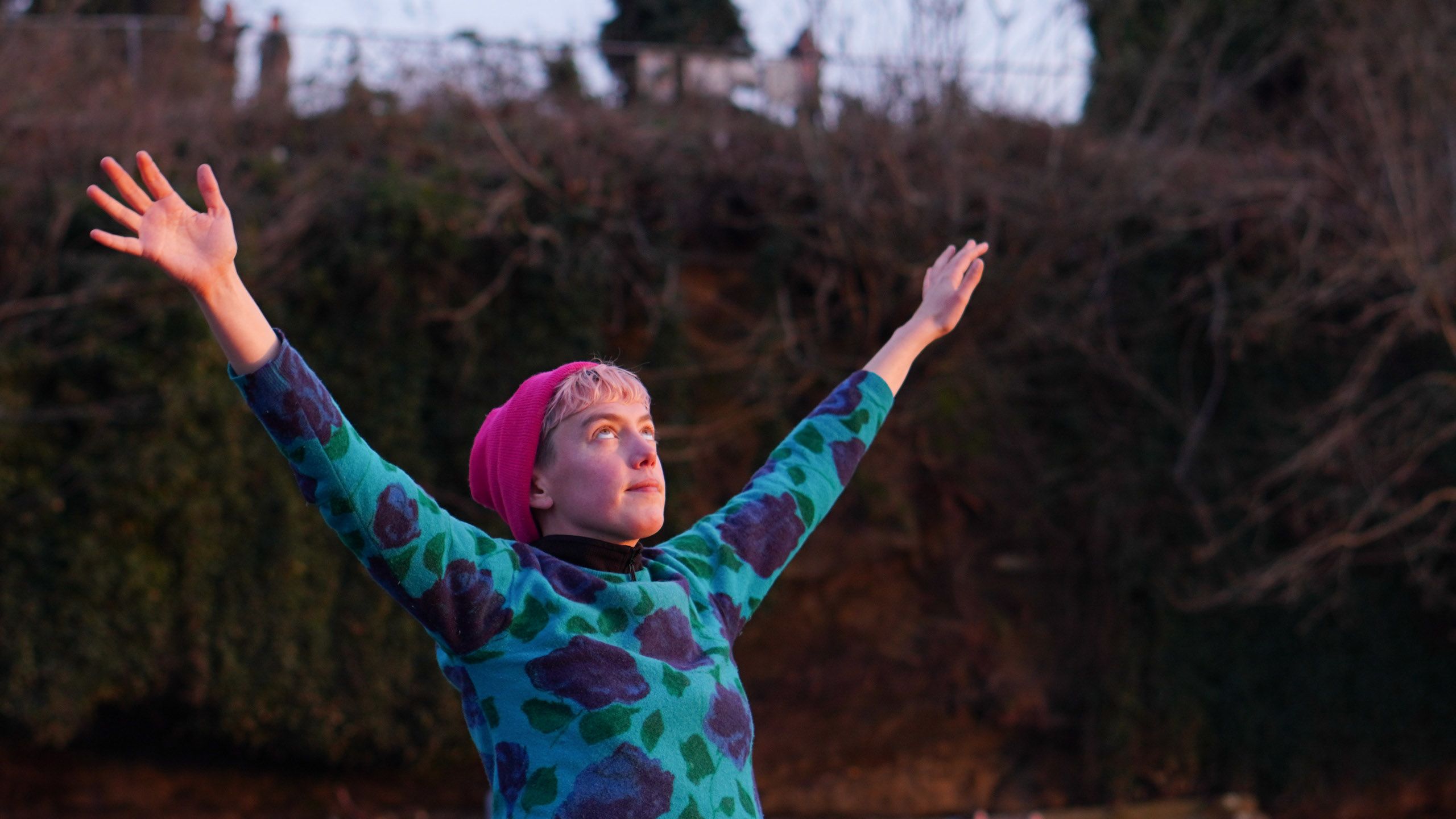
Wade in the Water
AJ

AJ Simmons, 29, Actor
I grew up having a pretty intense fear of water and the unknown connected to trauma. I’m from southwest Ontario where there's a practice around polar dipping, which I’ve never done. So I wasn’t thinking about dipping when my partner Claire told me about her New Year’s Eve ritual. But I was drawn to try something new. The impulse it called up in me was courage — facing my fear of the cold.
I live with Complex Post Traumatic Stress Disorder, so trauma is not unfamiliar to my body. When I’m in a trauma response, I tend to freeze, and that was the feeling I had leading up to my first dip. My mind was like, Why? What are you doing to yourself? It was so painful. I felt like my body was being stabbed all over with needles. I remember looking over at Claire and she was so calm and serene with her arms up to the sky. I was like, "What the actual fuck is happening?"
Everything in my body told me to get out. Thankfully, the air was so warm and the sun was so strong that it coursed through me back on the beach. All of a sudden, I felt calm and had an urge to go in again. I decided that my first dip was a release of 2020. The second was a welcoming of 2021.
It was such a feeling of accomplishment that I wanted to do it more. Now I go about every week. Dipping is something I can control. I can go in. I can listen to my body. I can choose this amidst everything that has felt so unstable. Having a clear idea of what the experience will be, with a beginning, middle and an end is grounding. In a time of such uncertainty, it’s something I can feel certain about.
My favourite part of the dip is when it’s done. That feeling of “Oh my god, I did it.” And my body coming alive with sensations from the wind brushing against my skin to the sand squished between my toes. Even if my body forgets the sensations throughout the day, my spirit knows it happened. It knows I’ve done something powerful and healing for my body and in relationship with the land and water. I feel strong. I feel accomplished. I feel courageous. It helps re-teach my body that it’s okay to be afraid.
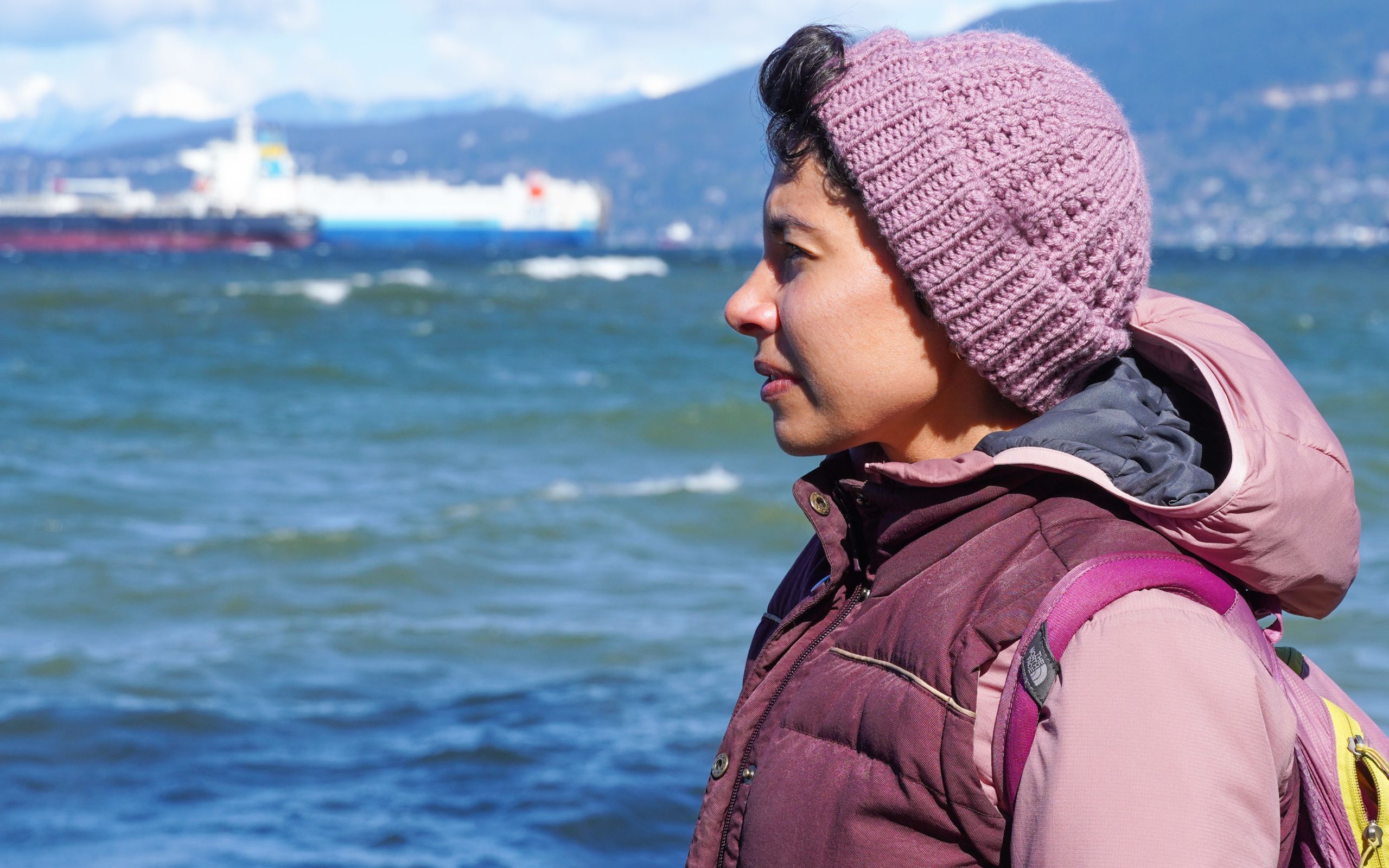
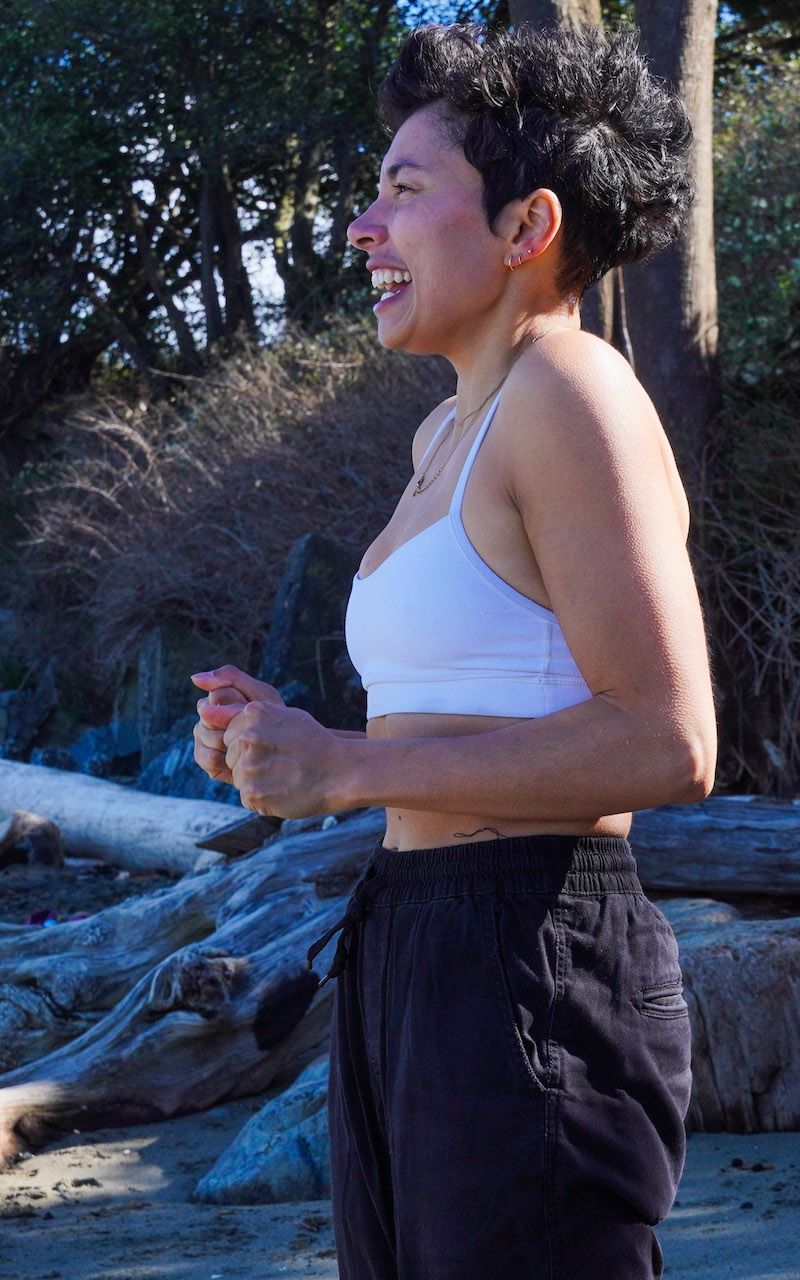
"All my cells feel wide awake"
-AJ Simmons
"I've never been this frozen before"
-AJ Simmons
Ocean Medicine
Polina

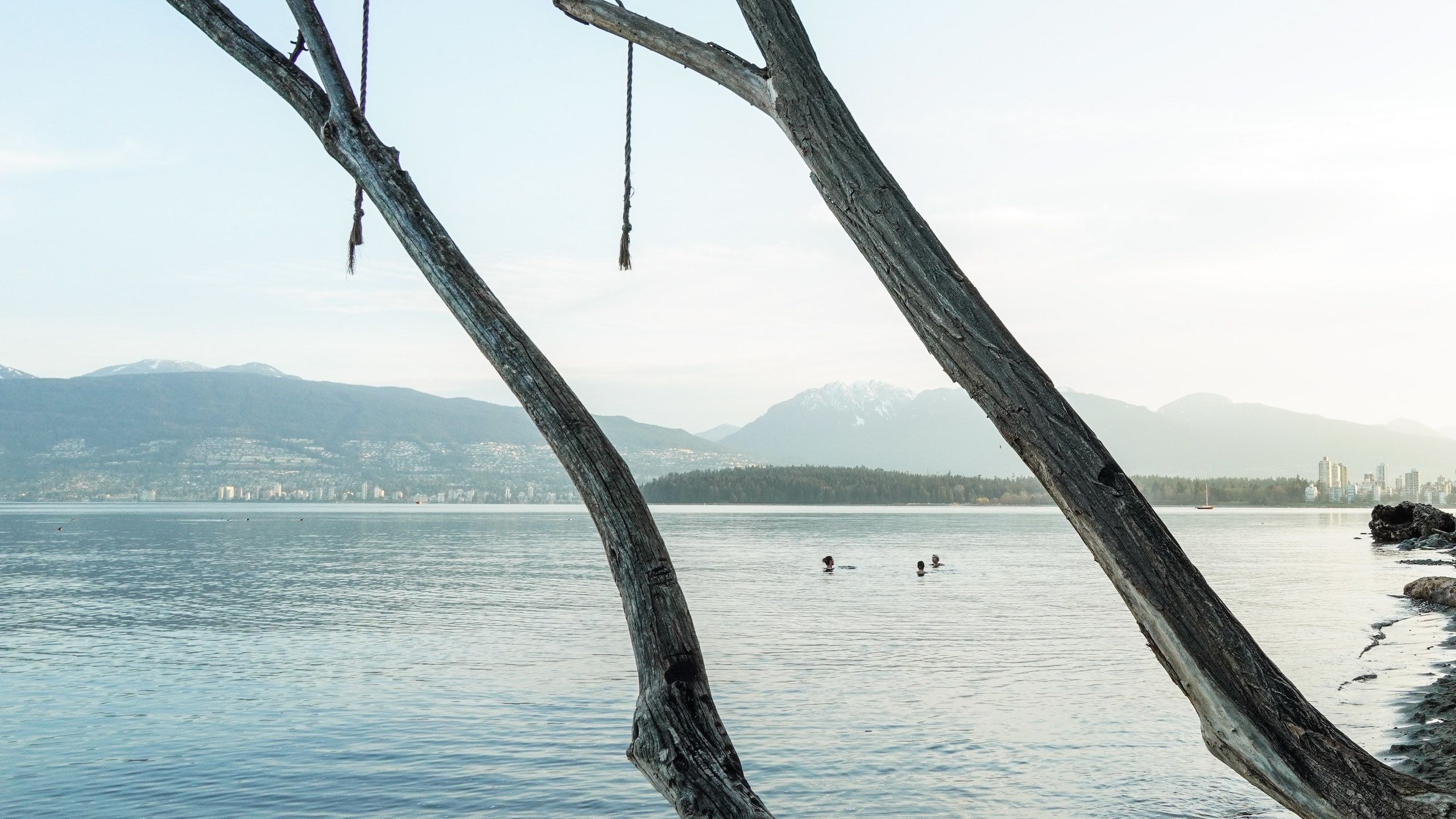
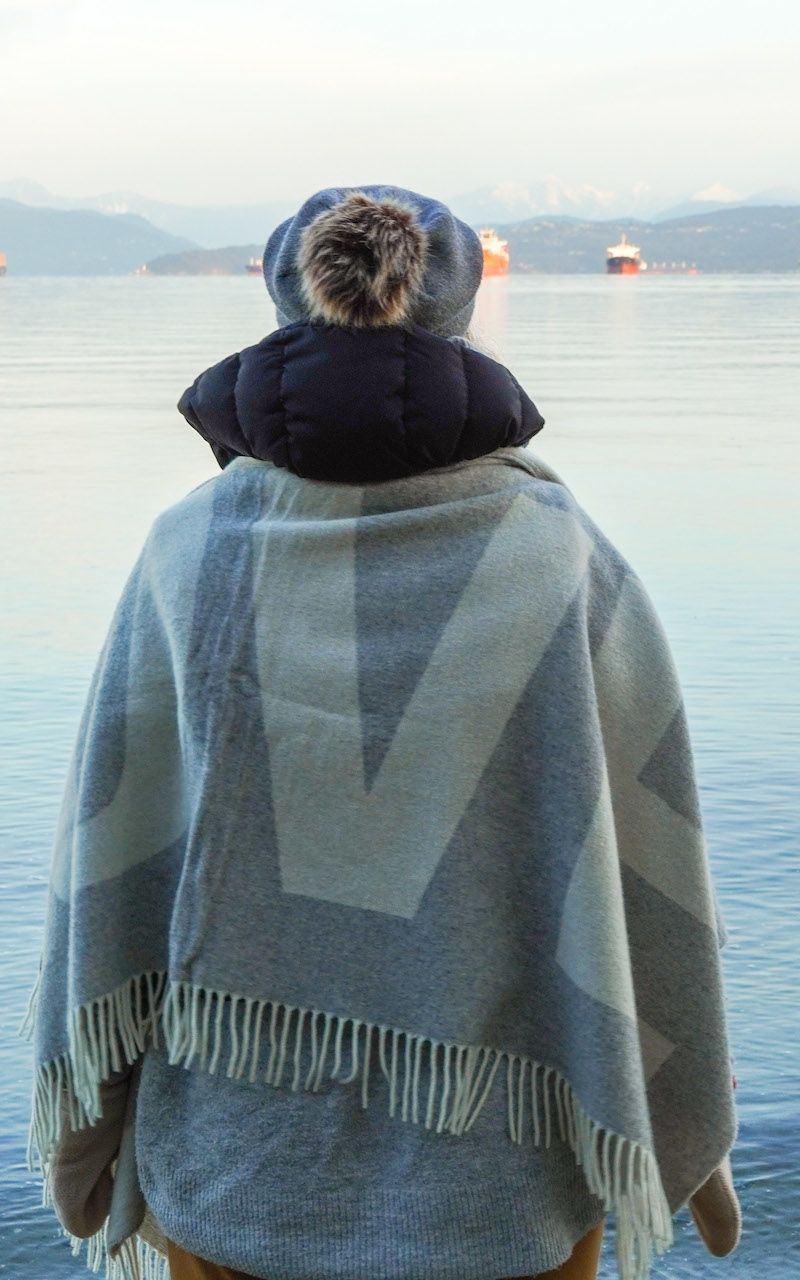
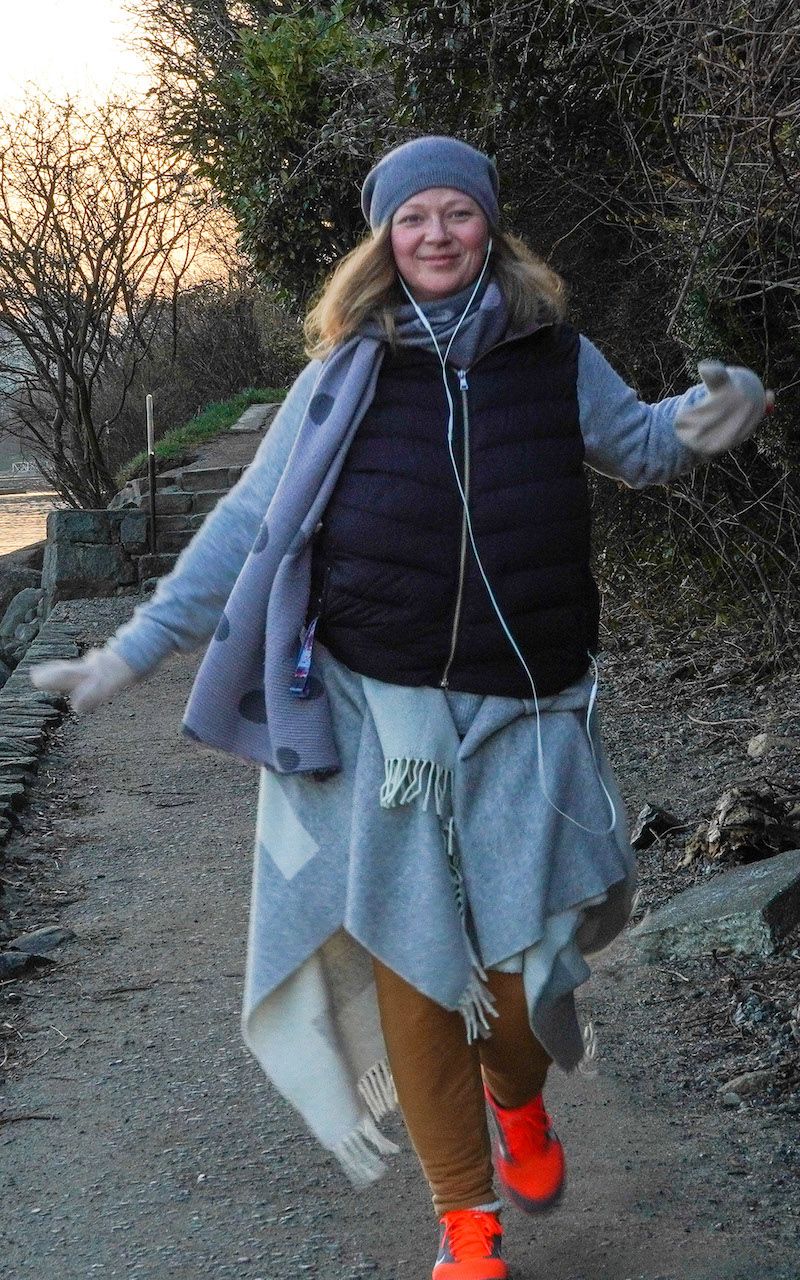
Polina Goudkova, 35, Actor
Last fall, when the mask restriction was put into place, it triggered some PTSD symptoms. Even when I got a doctor’s note that said I couldn’t wear a mask, people would not take my word. I was afraid to go to the grocery store. It was giving me so much anxiety that I started having to sleep with my lights on. I was afraid to take a shower. I was in a constant state of fight, flight or freeze.
The day I went in for a psychiatric assessment was the worst. I don’t even remember how I got there. Basically, I was faced with a decision between getting prescribed medication, which I did not want to do, or trying other options. Somebody suggested grounding, just standing with my feet on the Earth for 10 to 15 minutes a day. I was like, “Well, I’m right by the beach. Why don’t I stand in the sand?” I remembered that two years before I had a bad sprain, and going into the water healed my foot. So I tried that again. It was shocking but I felt so alive. It was my prescription drug.
Water has always been my go-to medicine. My mom says I was always running towards water, regardless of what temperature it was outside. And when my sister and I were little, Russia was going through this movement of cold-water dipping and swimming. So after every bath, my parents would pour three buckets of cold water on us, and we would see them do the same. They always put on brave faces, so maybe I’m tapping into that inner bravery. There’s something about the water that brings me back home.
When I fully submerge, I realize that whatever story I made in my mind about how cold the water is and how difficult it’s going to be is not true. It’s never as bad as I imagined. The feeling I get afterward is that I’m a superhero, that I’ve done something incredible. Even if I don’t do anything else for the rest of the day, I feel like a superhero. I think this is going to be my tool for the rest of my life.
“Even if I don’t do anything else for the rest of the day, I feel like a superhero.”
-Polina Goudkova
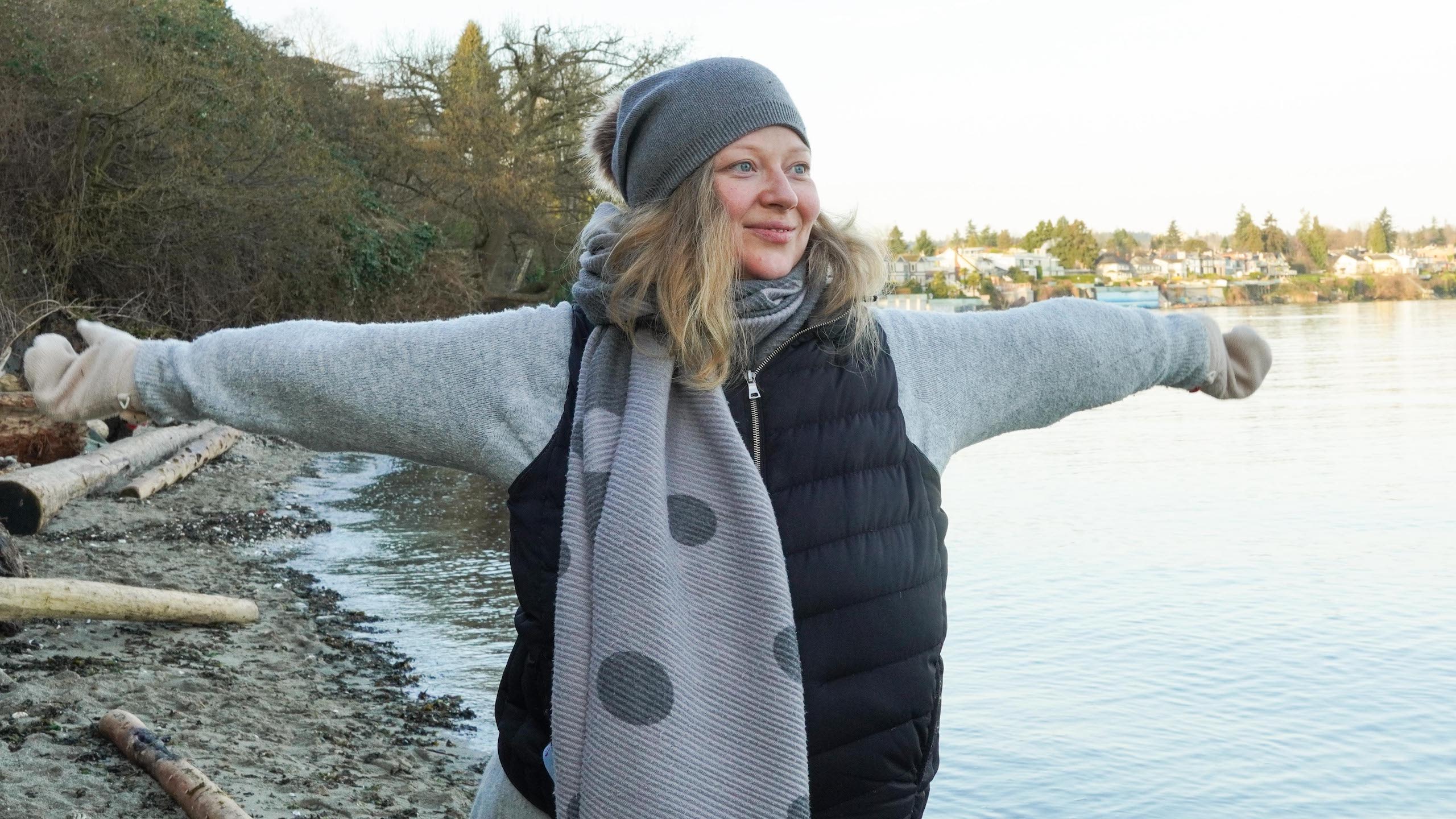
Hail Mary
Cecilia

Cecilia Garcia, 72, Cryptocurrency Consultant
The hardest time, I think, is the hours before we die because of a fear of the unknown. That’s why it’s good to have somebody in prayer. Since COVID, I know a lot of baby boomers are dying in hospital without anybody. They’re dying alone. So I sing the “Ave Maria,” the Hail Mary in Latin, for everybody. In Chinese, we believe that when people die, the spirit is hopping on the water. If you look at Genesis, it mentions God hovering over the water to make the day and light. Water is the only substance that has three states — steam, water, and ice — like the Trinity. It’s really Godly. It’s a sign of living.
February 3 was my 72nd birthday. I made a commitment to myself to get in the water with my whole body by then. I had come down to the beach to do yoga because the open air is not locked down. I saw some people go into the water. But at that time, I thought, I’m not going to do that. For a few months, I saw many groups doing it, and they seemed to have a lot of fun so I was curious. I walked down after my yoga and dipped my feet into the water. It was pretty cool. It took me a couple months because I can feel every step that goes in. But little did I know that one day, I’d say, “No, I’m going to try it.”
As soon as I dipped into the water, it was a shock. So I was really quick dipping that first time. I did just one Hail Mary when now I do five. But when I came out of the water, the heat came from inside, burning hot. Anything that comes from inside is so powerful. I was addicted. I've come every day since.
I live a really good life. The only downside is, at my age, it’s easy to fall into complacency. But this gives me a routine and it’s really refreshing. You come out here and look at the mountains and the water. It doesn’t matter if it rains. I take my umbrella and go into the water anyway. It’s delightful. You feel like the whole world is wrapping around you because all water is connected.
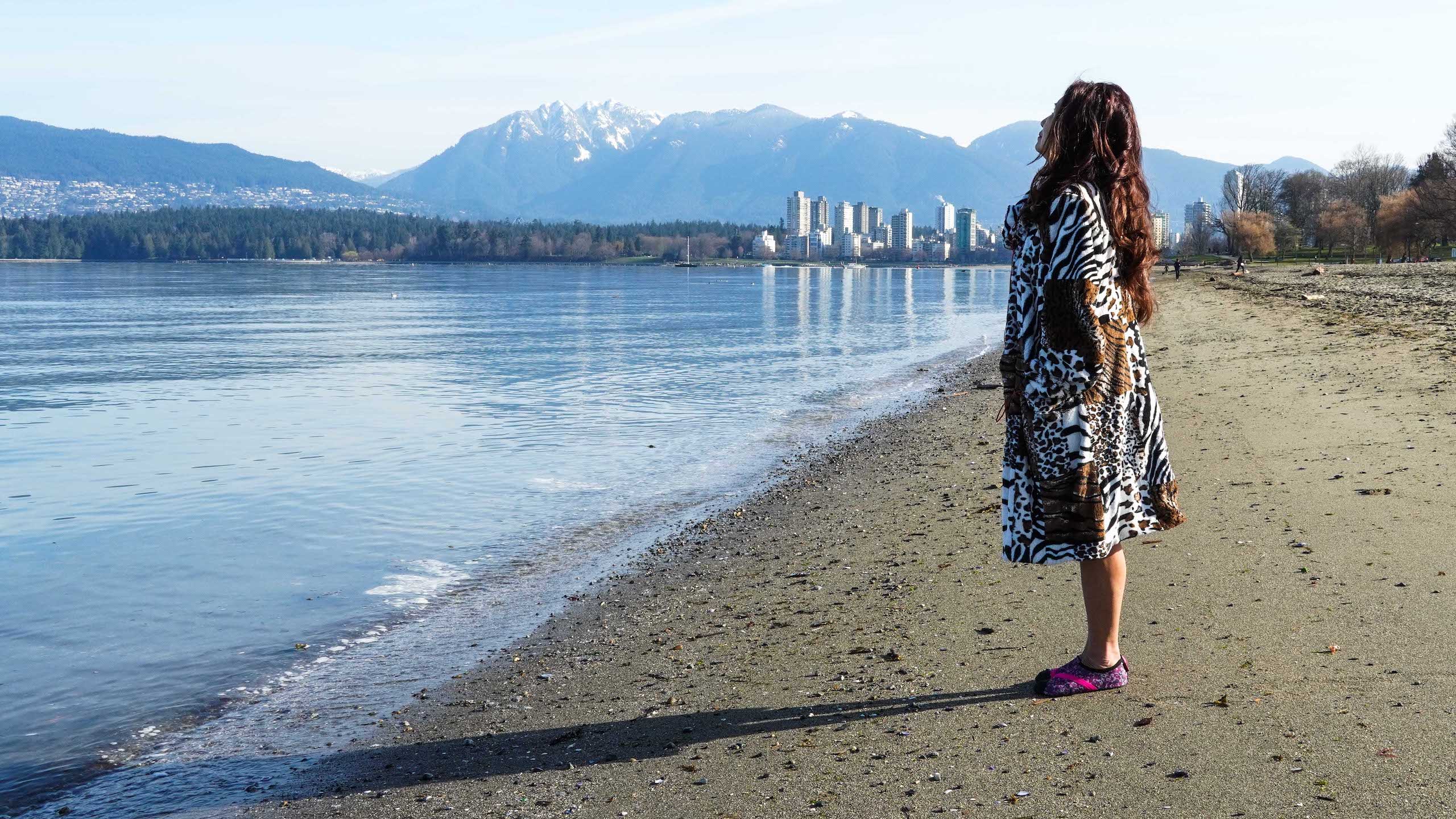
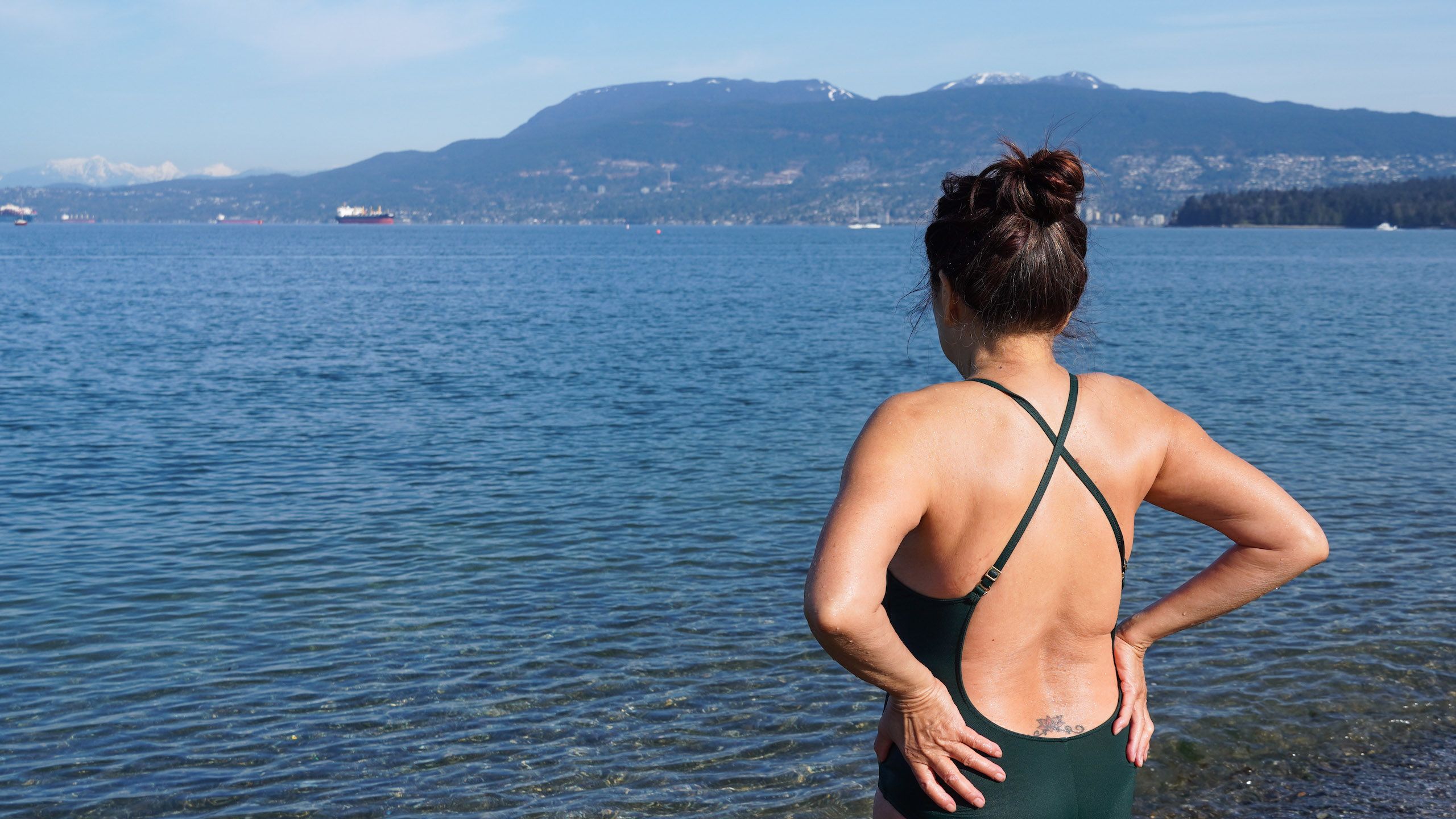
"If we want people at peace, we have to bring them into water."
-Cecilia Garcia
Day 363
Simon & Jo-Ann

Simon Donner, 48, UBC Climate Scientist
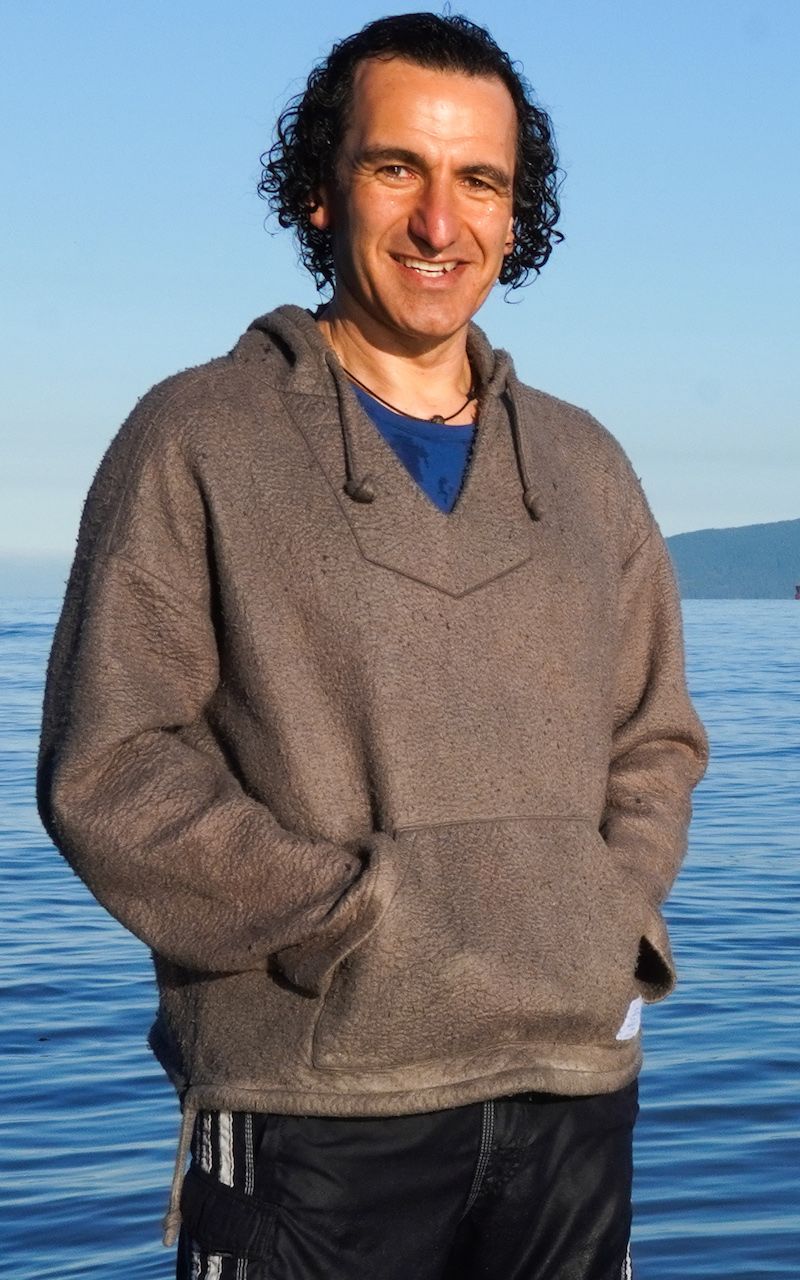
Jo and I are water people. We have both been paddling and doing water sports for years. When the pandemic started, we thought it would be a nice thing to just start a streak — to go in the water every day.
It’s not strange for us to do something like that. When we got engaged, we went in the water and decided to keep going until the wedding, which was 120 days. We got married at Volunteer Park in our bathing suits and people from the wedding party jumped in the ocean with us. So in April 2020, we said, “Well, we’ll do this while COVID is going on,” not being epidemiologists. Not realizing that it might be a full year.
I know people do this for supposed physical health, but I think it’s also good for mental health. The fact that we could walk into the water in the middle of January while talking about something else and the water is six or seven degrees and we don’t really notice that much. It’s been this great lesson in how powerful your mind is. How you feel at a certain time is so much about how you approach the situation.
It’s interesting how normal something that seems unusual can become to you, and the power of your brain to deal with discomfort. So we’ll have these days when we walk into the water and we won’t even really realize we just did it. We were coming up the stairs once and I’m like, “You realize it’s the beginning of February, we just walked into the ocean and back at 7:30 in the morning, and we didn’t even discuss the fact that we did that.”
Jo-Ann Donner, 53, Professional Organizer
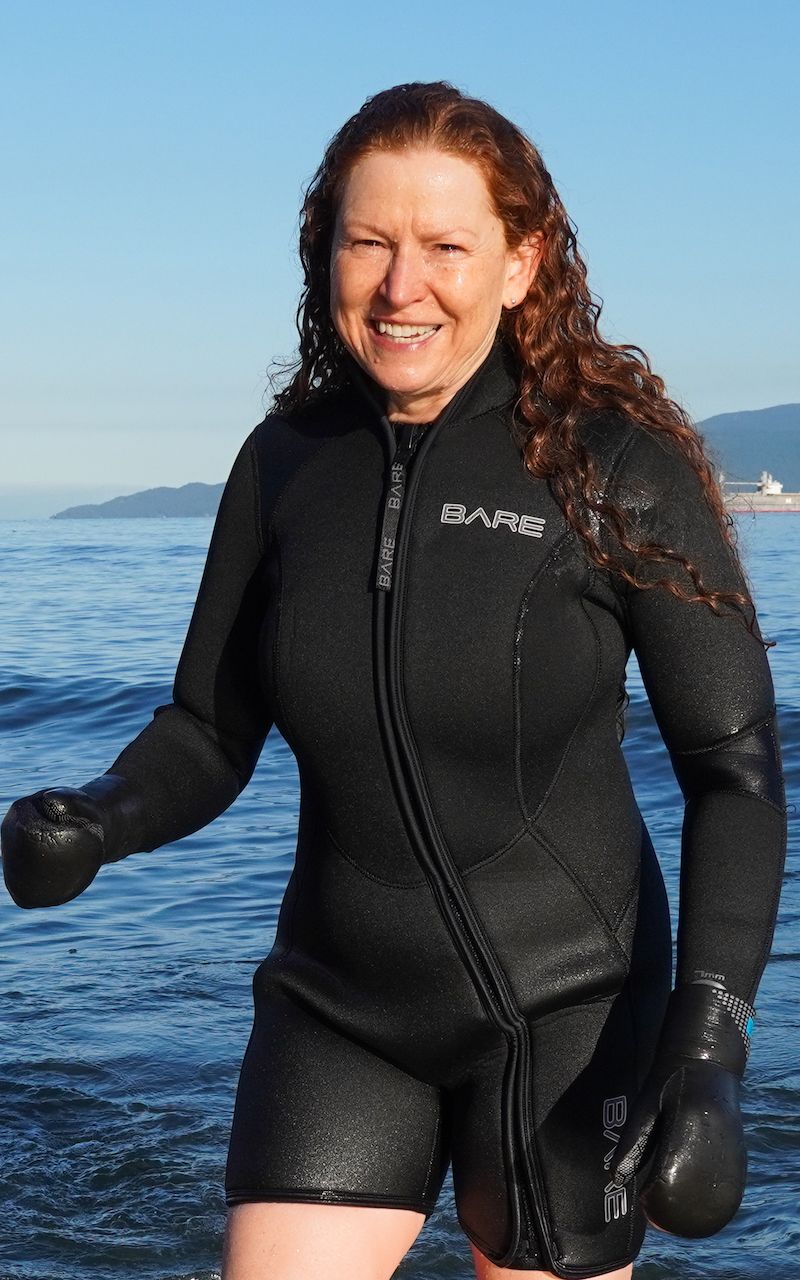
We started a little tradition where when we leave the house we answer the questions: What are you grateful for? What are you letting go of? What are you looking forward to? And so it’s a fun connection in the morning, especially when we’ve both been super busy and haven’t had a lot of time together. We’ve been way busier this last COVID year workwise, so it’s been really nice for us to have that connection time in the morning where we come down and go in the water.
If the weather’s really bad — when the wind is crazy, and the logs are blowing around, and it’s like death-defying — we have a laugh about it. The wind is the hardest part because when you come out wet it’s an instant ice-cream headache, and then you have to walk home. So that part is a bit tough. But I still went every day, even when I broke my wrist. We just put the bag on, added the elastics, and off we went.
Sometimes people will stand there and cheer us on or want to talk about it. We’ve had tourists take our picture. And we’ll often see neighbours as we walk back out. They’ll yell, “What day is it?” across the park. So the community aspect has been really nice.
It is getting to be a little tricky managing around our work schedules, though. So we thought we’ll go until we’re vaccinated and then we’ll just go when we want to. On April 7, we’ll have done a whole year, which feels awesome. But not having the pressure of having to go every single day would be nice.
"The silliness of that was fun"
-Simon Donner
Renew
Claire

When I came here on January 1, I made a commitment. I felt so clear that I would do this once a week until next year. The goal is to finish out the year.
I keep coming back because there’s a logic to it. I don’t mean that intellectually; I mean that bodily, spiritually. There’s always something every week to let go of, or release, or call in. And the chance to be in deeper gratitude around being alive and being on this land and what that means. Whenever I get close to the water, it just feels right.
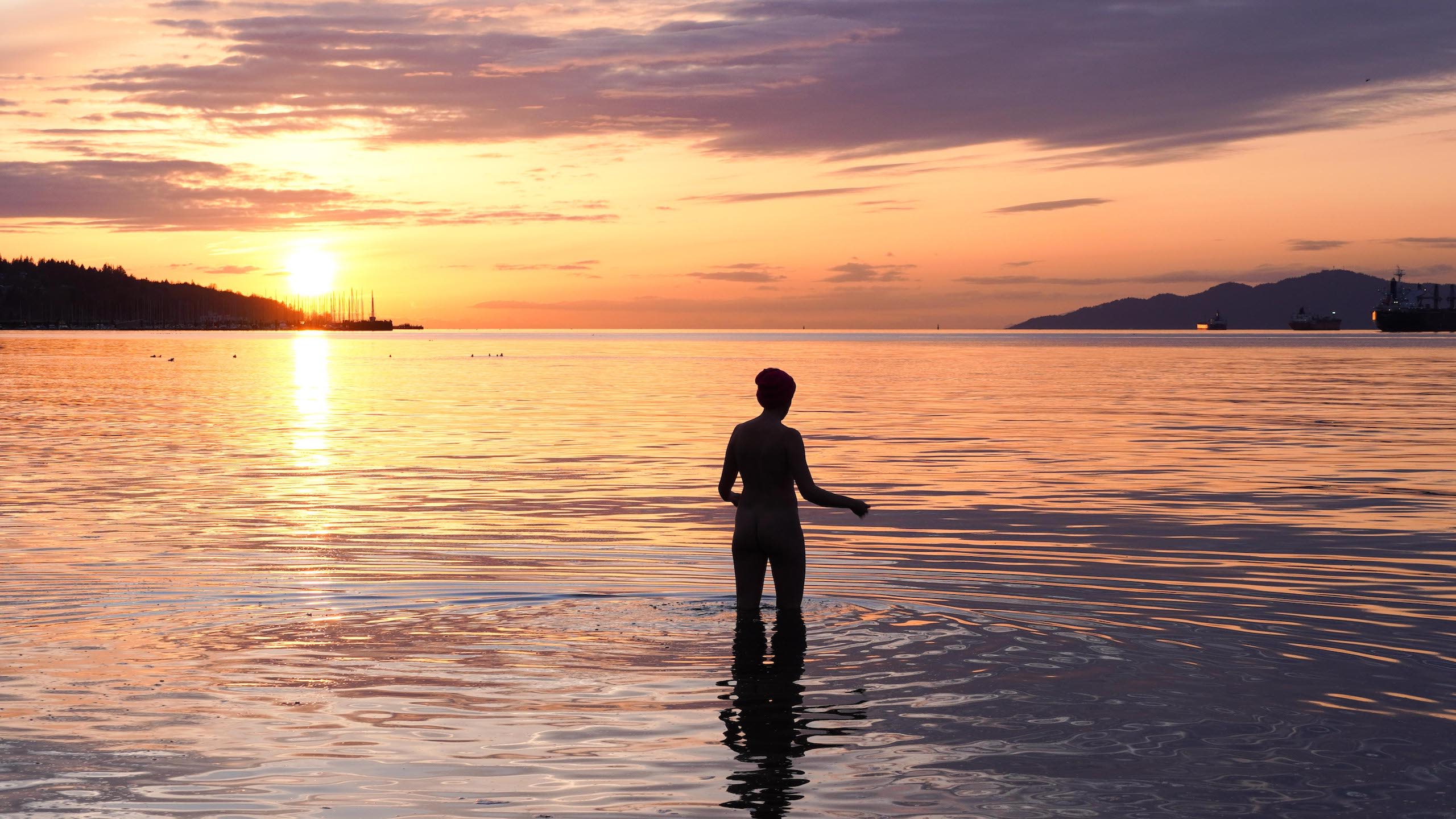
"Sometimes, it’s absolutely quiet. There’s no thoughts. There’s no anything. It’s just this quietness and seeing and feeling everything that’s around me. It’s a big expansive feeling."
-Claire Love Wilson
